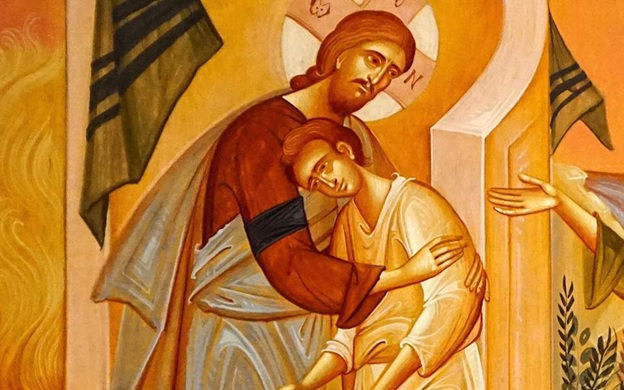If God isn’t Love, He doesn’t Exist
2 November 2021The notion that God loves only his own ‘good children’, who rigorously apply his will, and rejects the prodigals and the sinners is very widespread, not only among non-Christians but also among quite a number of Christians themselves.
A God who doesn’t love everyone, as his children, however they live, can’t be ‘the God of our fathers’. Such a God isn’t love and if God isn’t love, he doesn’t exist. Speaking to Christians, Saint Cyril of Jerusalem says: ‘If he’s the divinity, he’s certainly love’.
So when we present God as being almighty and dominant, harsh and rigid in his decisions, opposed to diversity, continually chastising inept and weak people, silent in the face of injustice and exploitation on the part of the powerful and, in general, acting on the basis of human weakness, we encourage atheism or sick religiosity*.

We have to work hard if we’re to reject teachings we’ve been taught, and have absorbed from childhood, when these are contrary to what the saints experienced and taught, so that we can know who is the God of Orthodoxy, rather than of religions or heresies.
Certainly, if people were close to our contemporary Fathers and Mothers who know from experience and who teach in a Patristic manner, and if they were prepared to trust such guides, it would be easier to free themselves from their false God- the despot- and to find pleasure in life, with its joys as gifts, and in other people as images of God. Because then they’d encounter the God of freedom, of joy and of love, who embraces all of us as we are and invites us- ‘whoever wants’- to tread the ‘dolorous path of life’ with his love as our support.
Just as it’s an error to teach a God who isn’t love, so, too, is it a mistake to teach a Church without a Cross. Christ, who is the truth, tells us that if we want to follow him, we must each take up our cross.
Our relationship with Christ isn’t an emotional approach. It’s a life-long fight and struggle, based on the ‘something’ that defines the serious and genuine relationship which remains unto the ages.
Just as God sent his Son to be sacrificed for the world, out of love, so anyone who follows him is sacrificed for him, out of love. Then they experience in their heart the Kingdom of God, where there is joy and gladness ‘now and forever’.
*It’s certainly difficult to equate this view with the Bible. As Fr. Andreas points out, God sent Christ to us out of love. And the Epistle reading for 1 November puts it very clearly (1 Cor. 12, 27-31; 13, 1-8). It ends: ‘Love bears all things, believes all things, hopes all things, endures all things. Love never ends’.






